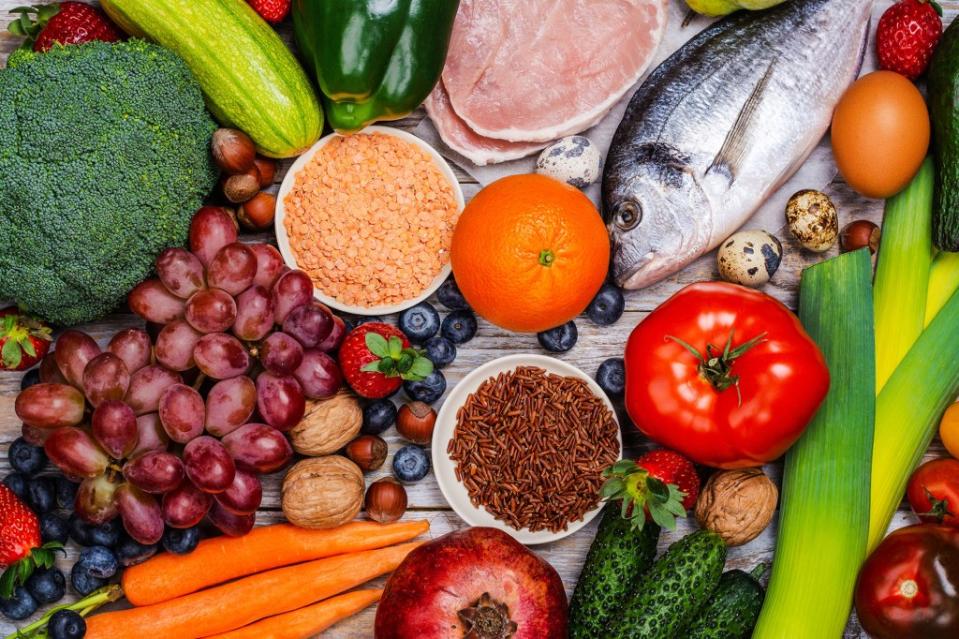I’m a nutrition expert — 3 things you should eat to keep bones strong

No bones about it.
As our bodies age, our bones break down, raising our risk of osteoporosis — a condition that makes our skeletal scaffolding brittle and increases the likelihood of fractures.
Broken bones are particularly disastrous for older adults, for whom fractures can mean long-term recovery, disability or even premature death.

While age, gender and genetics play significant roles in bone health, there are diet and lifestyle choices that can slow bone loss.
In particular, experts point to a set of nutrients — such as calcium and vitamin D — that can keep the skeleton strong as the years go by.
Calcium

Sue Shapses, a professor of nutritional sciences at Rutgers University, explained to the New York Times this week that when we don’t get enough calcium from food, our bodies pull the mineral from bones, weakening them over time.
Women 19 to 50 years old need 1,000 milligrams of calcium daily or 1,200 mg if they’re older.
Men 19 to 70 need 1,000 mg or 1,200 mg if they’re older.
A cup of milk has 300 mg of calcium. Dairy products such as cottage cheese and yogurt, bone-in fish like sardines, and dark leafy greens like kale and collard greens are also excellent sources of calcium.
Our ability to absorb calcium from food sources declines as we age, though experts still recommend getting it from a thoughtful diet rather than supplements.
Vitamin D

Vitamin D is essential for bone health, as it aids the body in absorbing calcium. It also plays an important role in the immune system and the health of muscles and nerves.
The body doesn’t make vitamin D naturally, so people need to derive the vitamin from the sun, food or dietary supplements.
The recommended daily allowance of vitamin D for adults is 600 international units (also called IU), increasing to 800 IU after 70.
Foods like canned tuna, rainbow trout, salmon, mushrooms, egg yolks and milk are all excellent sources of vitamin D.
Protein

Protein is essential to preserving bone health and muscle mass and preventing osteoporosis.
The recommended daily protein intake for adults is 0.8 grams per kilogram of body weight, so a 150-pound man should consume 54 grams of protein a day.
However, research published last year suggests older adults could benefit from consuming 1 to 1.6 grams of protein per kilogram of body weight daily, which would be 68 to 109 grams for a 150-pound person.
A 2021 study of seniors in Australia found that consuming 3.5 daily servings of dairy — rich in calcium and protein — led to 33% fewer fractures than just two servings per day.
Protein sources include lean meats, poultry, fish, seafood, eggs, dairy, nuts, legumes, chickpeas and tofu.
Other vitamins and minerals

The Mediterranean diet, which incorporates a rich array of fruits and vegetables, can help support bone health by protecting our cells from damage, impeding the aging process and slowing the development of osteoporosis.
Staples of the Med diet, such as legumes, nuts, leafy greens and fruit, are rich in magnesium and potassium, both of which support bone health.
Kelsey Mangano, an associate professor at the University of Massachusetts at Lowell, tells the Times, “Increasing the variety of foods you consume is one of the best ways to influence your bone health.”

Prunes and blueberries may be key for good bone health in older women. A 2022 study of 235 postmenopausal women found that those who ate four to six prunes per day for one year were less likely to lose hip bone mineral density than those who did not.
Another small trial of the same demographic found that those who consumed 17.5 grams of freeze-dried blueberry powder, the equivalent of 3/4 cup of fresh blueberries, every day for six weeks retained more bone calcium than no powder at all.
Don’t forget exercise

Experts advise that diet alone cannot stave off bone loss.
All that healthy eating must be complemented by physical activity. Adults 65 and older should log at least 150 minutes of moderate aerobic activity each week in addition to strength training and balance activities.
As Shapses tells the Times, “Exercise and a nutrient-rich diet with adequate calcium, vitamin D and protein are the foundation stones for healthy bones.”